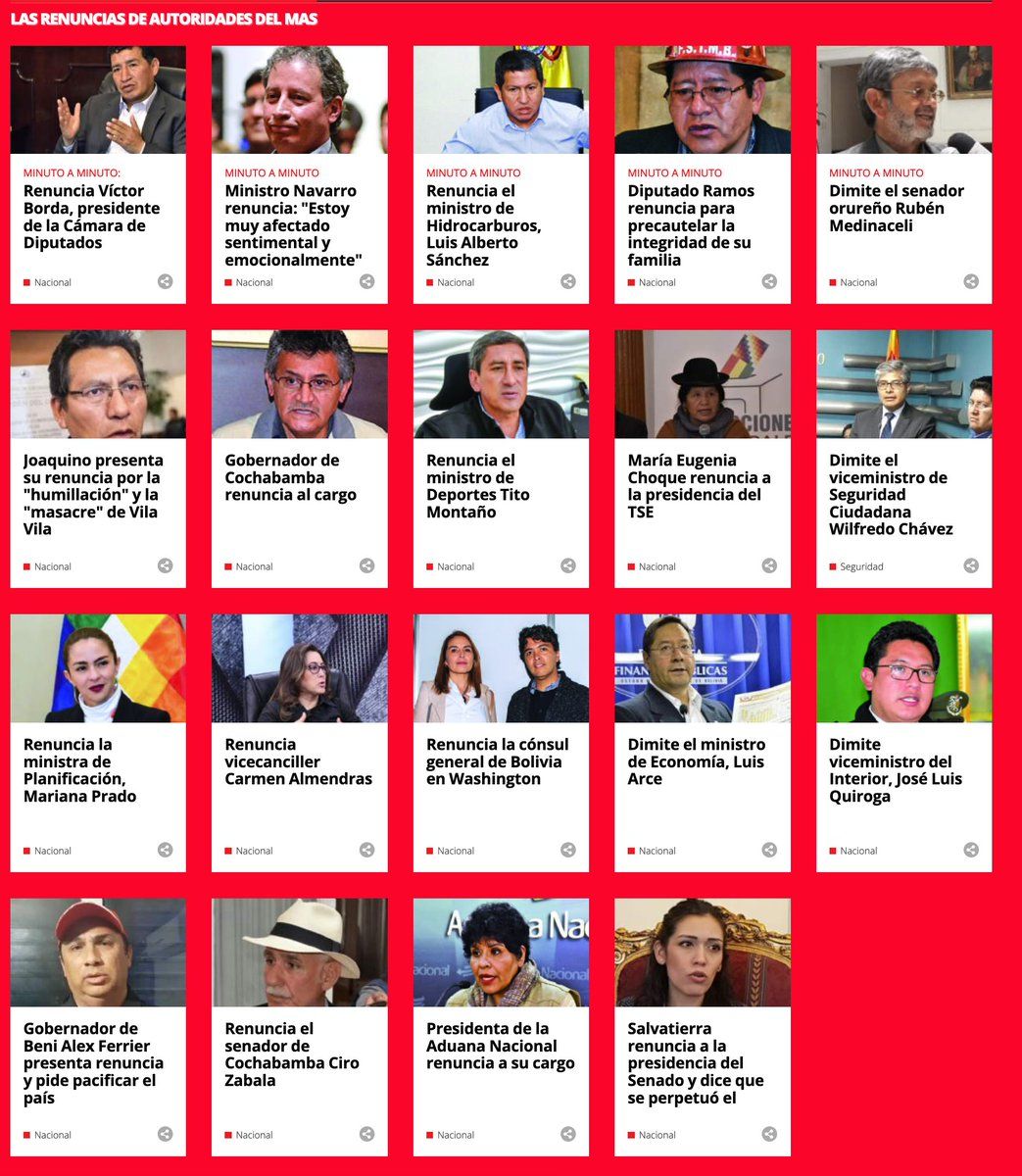-
There were three successive political avalanches surrounding Evo Morales' ouster in 2019. I think they happened for different reasons…
-
First, in the week before Evo Morales resigned a LOT of political forces came out for his resignation, including much of organized labor in Bolivia. erbol.com.bo/nacional/mineros-evo-presidente-la-gesti%C3%B3n-ha-terminado-la-renuncia-es-inevitable
-
Many left and/or grassroots forces that would completely reject the interim Áñez government insisted that Evo must go, and either new leadership or a new form of politics was necessary.
-
Some of them left in fear and fled to exile, at least a few (perhaps more) joined their constituents in repudiating violence against the anti-fraud movement. Others were pressured in different ways.
-
Third and finally, as the new government took on the appearance of a coup, elements of independent institutions from the judiciary to the press assumed a posture of compliance. paginasiete.bo/nacional/2019/11/12/tcp-reconoce-posesion-de-jeanine-anez-237202.html
-
Latent muscle memory in a society that had seen numerous coups before probably played a large role in this last wave, as did political opportunism. But it's vital to keep these three moments separate in our memories.
